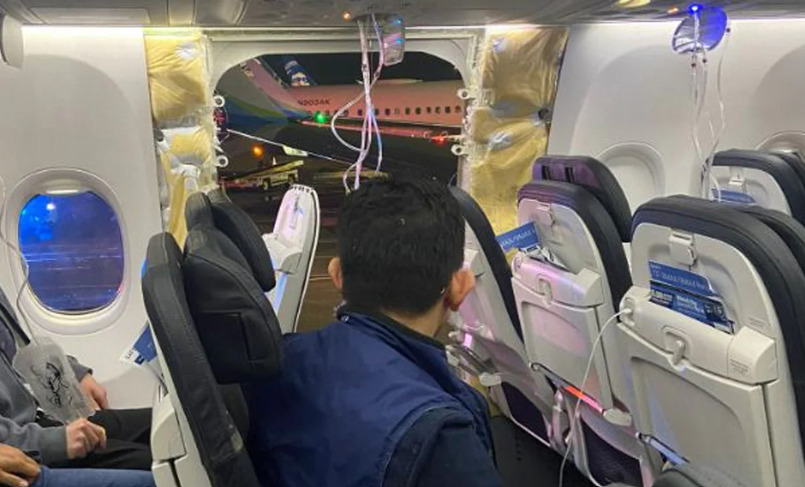A recent incident involving a cabin blowout at 16,000 feet and the subsequent grounding of over 170 Boeing jets has reignited concerns among airlines over the planemaker’s ability to manage a string of safety and supply challenges. Industry insiders and experts have expressed frustration at the impact of these issues on operations and profitability.
Alaska Airlines, the operator of the affected domestic U.S. flight, and United Airlines, which collectively account for 70% of the MAX 9 fleet, have been forced to cancel numerous flights. The discovery of loose bolts in some of the grounded planes has further complicated the situation, potentially delaying their return to service and affecting the earnings of both airlines.
Analysts have already revised down first-quarter profit estimates for Alaska Airlines and United Airlines, with the extent of the impact contingent on how long the grounding persists. Boeing CEO Dave Calhoun has acknowledged the company’s missteps and emphasized the need to regain the trust of customers and stakeholders. However, he also cautioned that the coming weeks would be challenging for the company.
The repercussions of Boeing’s troubles are not limited to operational disruptions but also extend to financial implications and broader industry dynamics. The grounding of a significant portion of the MAX 9 fleet has prompted concerns about potential discounts to secure new sales, although market conditions remain constrained by tight supply and escalating prices.
Dennis Tajer, a spokesman for American Airlines’ pilots union, highlighted deeper systemic issues at Boeing, echoing sentiments of dissatisfaction shared by many in the industry. United Airlines, in particular, has expressed frustration with a supplier with whom it has historical ties, exacerbating tensions in the supply chain.
Boeing’s challenges come amid a series of production issues that have hindered aircraft deliveries, impacting airlines’ ability to meet surging demand. While Airbus has also faced supply chain constraints, it managed to finish 2023 on a strong note after missing earlier targets. However, the overall industry continues to grapple with parts and labor shortages.
The strain on airlines is evident, with some, like Southwest Airlines, having to revise growth plans due to delivery delays. Southwest, traditionally a loyal Boeing customer, is now considering diversifying its fleet to mitigate risks associated with relying solely on one manufacturer.
The MAX aircraft, which previously faced global groundings following fatal crashes, has encountered additional setbacks since returning to service, including hardware issues and delivery delays. These challenges have further complicated airlines’ planning efforts at a time when they seek stability and certainty amid a post-pandemic demand surge.
Boeing’s recent performance has prompted calls for diversification in the industry, with some advocating for a more balanced supplier landscape to reduce reliance on a single provider. This sentiment was echoed by Willie Walsh, former head of British Airways’ parent company IAG, who emphasized the importance of having multiple suppliers.
While Boeing continues to attract orders, notably from Indian airline Akasa, the company’s ability to address its ongoing challenges will be crucial in maintaining its position in the market. Analysts warn that repeated incidents involving the MAX aircraft could undermine confidence in the company and the broader commercial aviation sector.
Looking ahead, industry stakeholders emphasize the need for a stable and competitive duopoly in the aircraft manufacturing industry. However, Boeing’s recent struggles underscore the challenges in achieving this goal, with each setback further eroding the stability of the market.
(Source: Washington Post | Reuters | NBC News)









